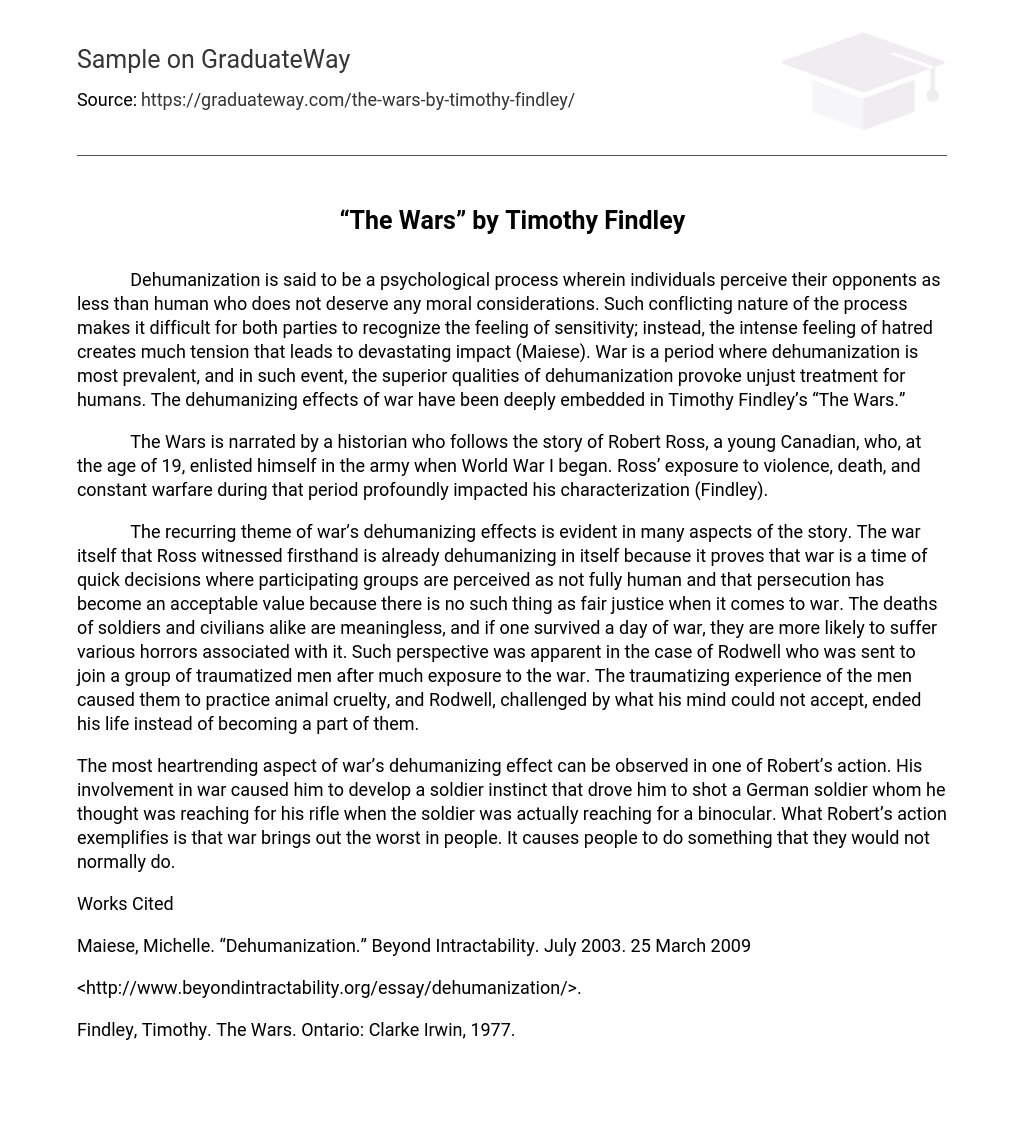Dehumanization is said to be a psychological process wherein individuals perceive their opponents as less than human who does not deserve any moral considerations. Such conflicting nature of the process makes it difficult for both parties to recognize the feeling of sensitivity; instead, the intense feeling of hatred creates much tension that leads to devastating impact (Maiese). War is a period where dehumanization is most prevalent, and in such event, the superior qualities of dehumanization provoke unjust treatment for humans. The dehumanizing effects of war have been deeply embedded in Timothy Findley’s “The Wars.”
The Wars is narrated by a historian who follows the story of Robert Ross, a young Canadian, who, at the age of 19, enlisted himself in the army when World War I began. Ross’ exposure to violence, death, and constant warfare during that period profoundly impacted his characterization (Findley).
The recurring theme of war’s dehumanizing effects is evident in many aspects of the story. The war itself that Ross witnessed firsthand is already dehumanizing in itself because it proves that war is a time of quick decisions where participating groups are perceived as not fully human and that persecution has become an acceptable value because there is no such thing as fair justice when it comes to war. The deaths of soldiers and civilians alike are meaningless, and if one survived a day of war, they are more likely to suffer various horrors associated with it. Such perspective was apparent in the case of Rodwell who was sent to join a group of traumatized men after much exposure to the war. The traumatizing experience of the men caused them to practice animal cruelty, and Rodwell, challenged by what his mind could not accept, ended his life instead of becoming a part of them.
The most heartrending aspect of war’s dehumanizing effect can be observed in one of Robert’s action. His involvement in war caused him to develop a soldier instinct that drove him to shot a German soldier whom he thought was reaching for his rifle when the soldier was actually reaching for a binocular. What Robert’s action exemplifies is that war brings out the worst in people. It causes people to do something that they would not normally do.
Works Cited
Maiese, Michelle. “Dehumanization.” Beyond Intractability. July 2003. 25 March 2009
<http://www.beyondintractability.org/essay/dehumanization/>.
Findley, Timothy. The Wars. Ontario: Clarke Irwin, 1977.





